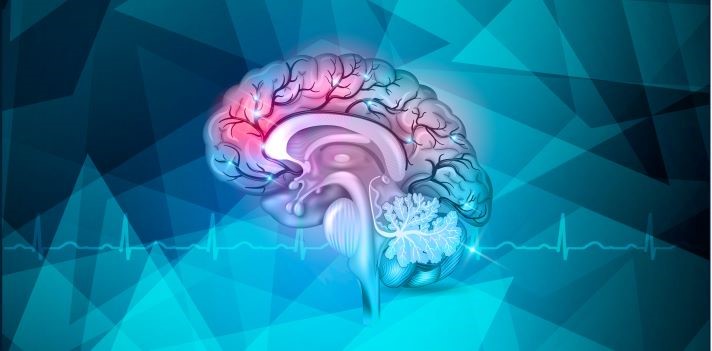Maintaining brain health
While we often talk about keeping our body healthy, we can be less focussed on actually keeping the brain healthy. It’s easy to take for granted all the things our brain does, from coordinating body movements, your feelings, maintaining memories, enabling you to keep learning and facilitating thinking and recall. As you age keeping your brain healthy is one of the most important things we can do.
There are many factors that are involved in maintaining your cognitive and neurological health. It is imperative to continually challenge your brain with intellectual activities, social interaction and physical activity and avoid things that can have a negative impact such as stress, smoking, excessive alcohol, dehydration and bad nutrition.
Here we discuss the many aspects of what is perceived to create a healthy brain and staying as sharp as we can as we age.
Active mind
Exercising the brain is long thought to improve cognitive ability, and that the right mental exercises will ‘boost the brain’ and make us swift thinkers, with more creative insights and logical reasoning.
Reading, games, puzzles and learning new things have all been found to exercise and stimulate the mind. Some great examples are doing crosswords, playing memory games, learning a new language or a musical instrument and playing one of the many brain training apps that are now available.
Engaging several different senses is also thought to assist in keeping the mind sharp, for example engaging touch and smell at the same time through activities such as baking or gardening.
It’s also healthy to vary brain activities. Changing up your brain exercises will assist in maintaining the challenges on your brain and keep it active and able to learn.
Active body
Exercise increases circulation, including circulation to the brain, which means that blood flow and nutrition to the brain is increased which includes increasing oxygen and glucose to the brain. The brain also gets a work out by coordinating the physical activity. Exercise also helps with the growth of new brain cells and the connections between brain cells, by assisting in creating three essential “growth factors”. These growth factors also grow new blood vessels and minimise inflammation.
A good physical workout can also awaken dormant stem cells in the hippocampus, the part of the brain that is responsible for learning and memory.
There are many ways to participate in physical activity from team sports, gyms, weights, swimming and walking.
Visit here (link to physical activity blog) for more ideas.
Food for the brain
We all know that a good diet will improve all areas of our health, and a diet full of coloured fruit and vegetables, protein, low GI carbohydrates, nuts, seeds and fish has been found to assist with your brain health. Whereas a diet high in fat, especially saturated fats and trans fats may have a negative effect on the brains health.
There are many studies and an increasing amount of evidence that specific foods can assist in slowing our mental decline. Some of the foods that are being claimed as ‘brain-boosting’ are foods that are high in Omega 3 fatty acids, such as oily fish like salmon, mackerel and sardines, nuts and seeds such as flax seeds, walnuts and chia seeds. Broccoli, spinach and kale are also good sources of Omega 3 fatty acids.
A recent study by the University of South Australia found that “Long-term, high nut consumption could be the key to better cognitive health in older people”, read more here www.sciencedaily.com/releases/2019/03/190319100803.htm
Other food that has been found to benefit our brain functioning includes Ginkgo Biloba (extracted from the Ginkgo tree), green tea and protein in general. Not only do these foods have a positive effect on memory and brain function, protein contains amino acids which is related to mental alertness.
Dehydration can also negatively affect brain health, and may decrease brain fluid levels. Brain dehydration can lead to the shrinking of brain cells which can result in negative effects on cognitive function. Therefore, is very important to stay properly hydrated.
Vitamins for the brain
As discussed above, good nutrition is important for brain health. Other than diet, vitamin supplements may be a good way to help support the brains health. Vitamins such as B vitamins, fish oil, Ginkgo biloba, turmeric, antioxidants, minerals, and omega-3 fatty acids may all help support brain health, and cognitive decline associated with normal ageing.
Ngaire Hobbins, an expert in nutrition, ageing and brain health, shares her healthy brain tips in her blog here (www.ngairehobbins.com/blog-education/healthy-brain-tips?rq=brain%20health). Stating that the special brain nutrients our brain needs include iron, zinc, selenium and the B vitamins – especially B12, folate, niacin and thiamine.
Social connection for a healthy brain
We all need a variety of brain stimulation to keep our brains healthy. As social animals we need the brain stimulation that social activity provides us, especially later in life. Studies have shown that people, specifically later in life, who have less social stimulation had both cognitive and physical limitations.
Relationships with others gets the brain to work on the memory and the more diverse your family and friends are in regards to the types of people they are, the more this challenges the brain to think creatively. Family and friends provide different perspectives, which are often thoughts that you may not have had by yourself. Therefore, relationships help with keeping an open mind, creative thinking and memory.
Sleep for brain health
For some time now, a lack of sleep has been connected to poor memory. Studies have frequently associated adequate sleep with better memory performance. The brain doesn’t stop when we are asleep. It works on memory consolidation, making sense of the day’s activities, putting learning from the day into memory and processing short term memories to long terms memories. Sleep deprivation could therefore negatively impact memory and learning.
If you do not sleep properly, you can lose the benefit of your days learning experiences and you will also not learn as well the next day. It is suggested that adults should have between seven and nine hours of sleep each night for optimal health and to perform at their cognitive best each day.
Reduce stress
Cognitive differences between individuals is associated to many factors, one of them being the exposure to chronic or long-term stress. Long-term stress negatively impacts the brain due to the exposure of stress hormones. This can have an impact on the brain structure and the Hippocampus, the part of the brain involved in memory. Not only is memory performance affected, it is now believed that the brains vulnerability may also be affected. And chronic stress could play a role in the development of age-related cognitive disorders such as dementia and Alzheimer’s disease.
Meditation is a great way to start decreasing your stress levels, see below.
Other healthy choices for brain health
Not smoking
Quitting smoking is a great first step to improve brain health. Research has found that people who smoke have between 200% – 37% increased risk of developing dementia. Depending on the quantity that you smoke (from 2 packs a day to the lowest level of smoking). There is good news from this research that found, those that smoke and stopped had no increased risk of dementia.
Drink less alcohol
Drinking too much alcohol can be detrimental to your health in many ways. It can negatively alter the brain and impact your memory. Studies have found that binge drinkers showed difficulties in immediate and delayed memory-recall tests. Alcohol shows neurotoxic effects on the brain and can damage the hippocampus.
Occasional moderate drinking isn’t an issue. However avoiding excessive or binge drinking is the best way to look after your brain health and memory.
Meditate
The practice of meditation can positively affect your health in many ways. It has been found to reduce stress, pain, lower blood pressure, improve concentration and memory and even increase the grey matter in the brain. Grey matter contains most of the brains neuronal cell bodies and is involved in muscle control, senses, decision making and more. Grey matter decreases with age, and that directly affects memory and cognition. It has also been found that those who meditate have increased cell density in the hippocampus and frontal lobes.
Eat less sugar
Eating too much sugar has been associated to many health issues, including chronic diseases and cognitive decline. Studies have found that a diet high in sugar can lead to poor memory and a reduction in brain volume. Especially in the hippocampus which is responsible for learning and memory. A diet lower in sugar can assist with a better memory while also assisting in overall health.
Interested in similar articles? Why not check these out:
The benefits of more time outdoors
Sources and further reading
www.blackmores.com.au/action-plans/the-secret-to-better-brain-health
www.blackmores.com.au/brain-health/your-guide-to-brain-health
www.psychologytoday.com/au/blog/iq-boot-camp/201407/10-ways-improve-your-brain-health
www.ngairehobbins.com/blog-education/healthy-brain-tips?rq=brain%20health
breakingmuscle.com/fitness/six-easy-ways-to-enhance-your-brain-health











